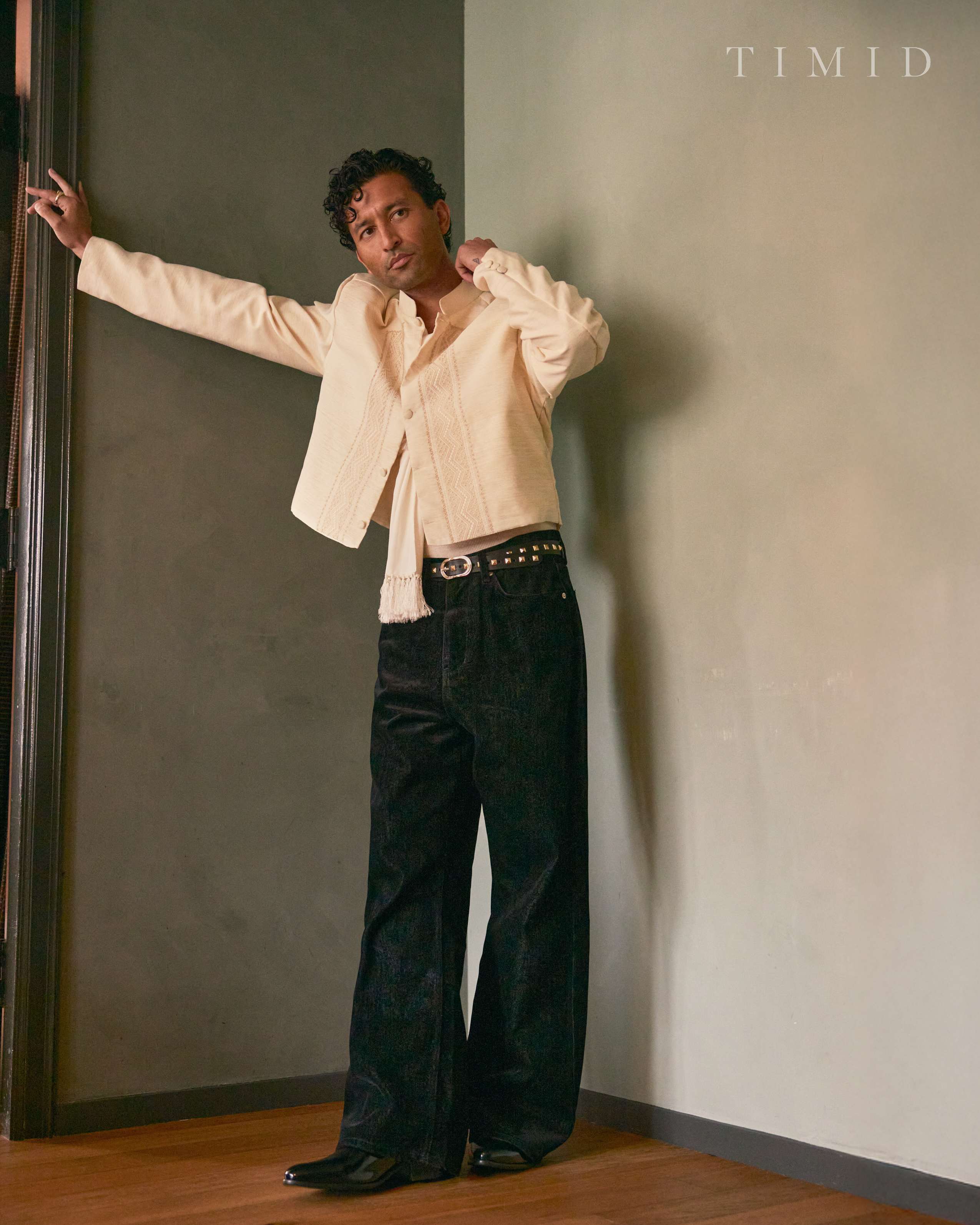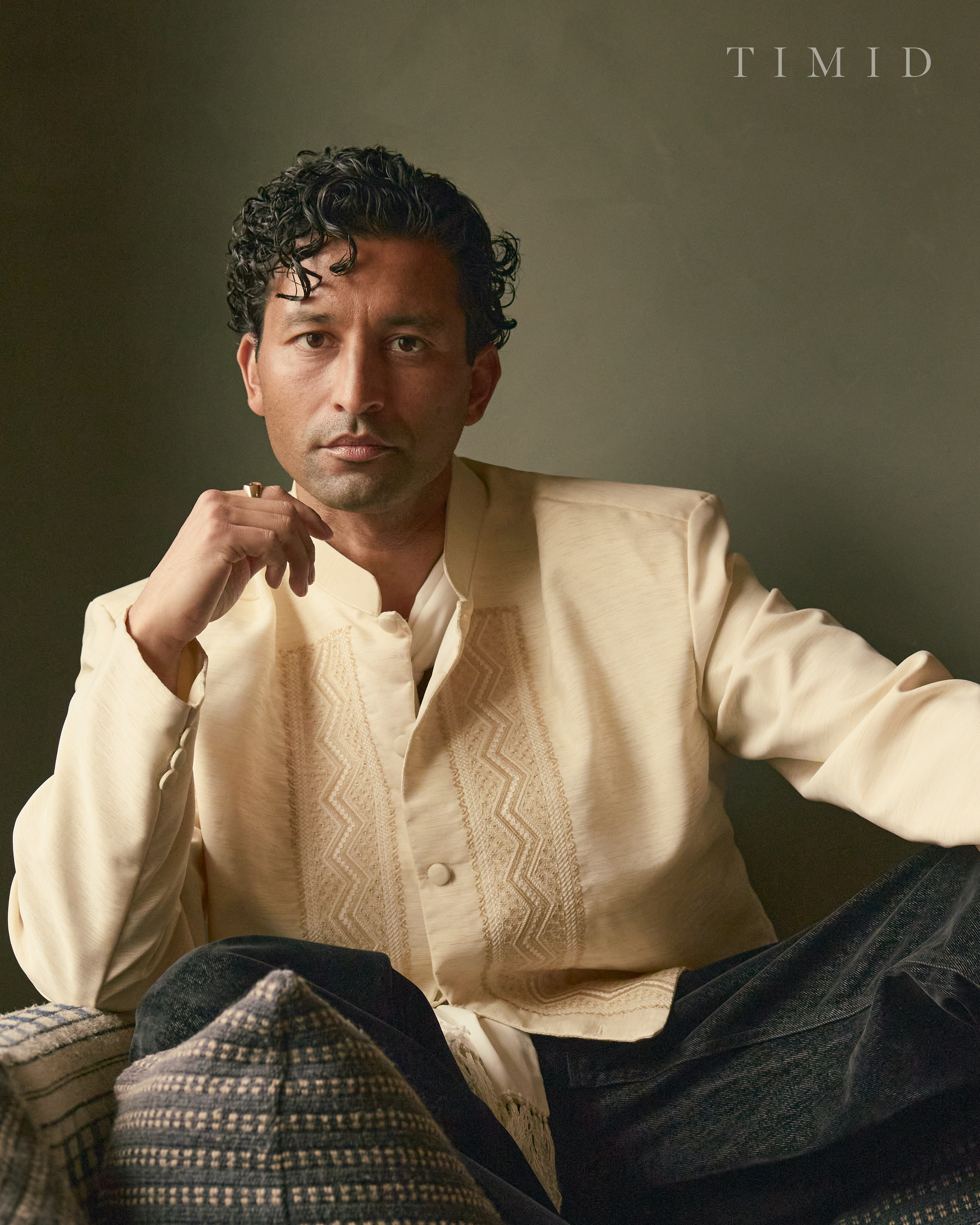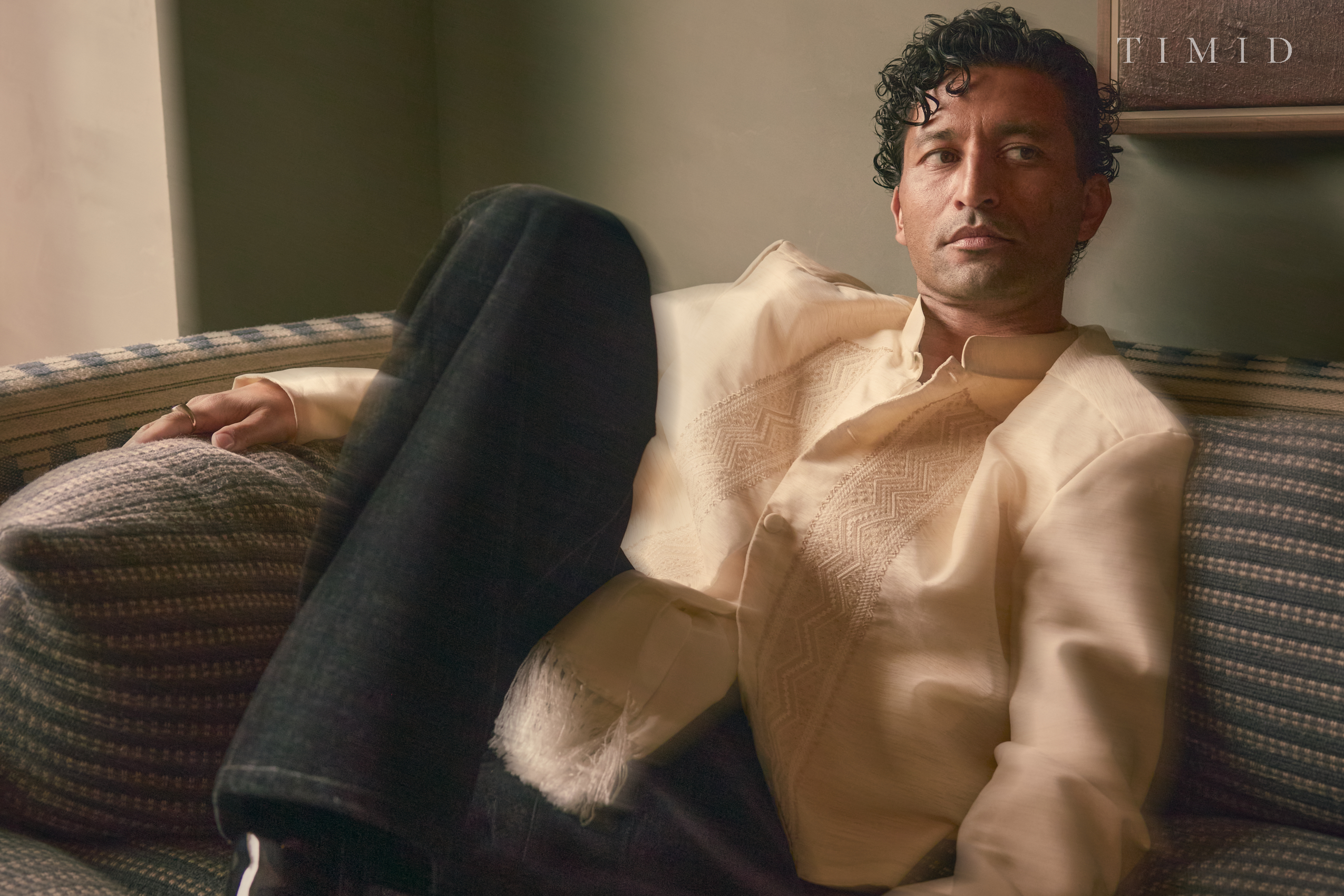

-
Talent: Justin Tipping @jtip
Photos & Video: Henry Wu @hello.henry
Fashion: Taylor Okata @taylorokata
Grooming: Aika Flores @by.aikaflores
For Justin Tipping, writing stories starts with vulnerability.
It’s an unexpected entry point for a writer-director drawn to themes of masculinity, violence, and systemic injustice. Yet, it’s this face-off between intensity and intimacy and a personal connection he brings to every project that makes his storytelling unforgettably his.
Tipping made his feature debut in 2016 with KICKS, a coming-of-age drama about materialism, manhood, and identity. The film launched him as a distinctive new voice in American cinema and introduced his signature style of fusing genre experimentation with a touch of realism. Since then, Tipping has expanded his vision in both film and television, piloting series including Peacock’s Joe vs Carole, Showtime’s Flatbush Misdemeanors, and BET’s Lena Waithe’s Twenties.
Now, Tipping returns with his latest project, HIM, a football horror film that follows a rising-star quarterback whose obsession with greatness drives him into a sinister territory. In a conversation with Timid, Tipping reflects on his creative process, the making of HIM, and the deeper themes and influences behind his work.


Justin Tipping: Well, every morning before I get to set, I usually make myself a pour-over, kiss my dog Pepsi Spaghetti on the forehead, and send her off to daycare. And I have a banana. I don't know why, but I like to have a banana before I talk to the group.
JT: I think [there was] an excitement [in taking] on two genres, [mashing] them up to essentially create a new language, and [introducing] audiences from both sides to each other and having a conversation. [It] was [an] opportunity to make audiences who might not know anything about sports [understand] what it feels like to be a professional athlete and the pressure that comes with it. Anyone who's a fan of horror but not sports could still understand [HIM], and anyone who’s a fan of sports but not horror could appreciate [the genre].
JT: For the younger audience, I hope HIM makes them stop and reflect on how they define success and how they’re going to pursue it.

JT: Ooh, actually, I had a playlist before making this movie. I’d say Ricky by Denzel Curry, Floor Seats by A$AP Ferg, and Windmills of the Mind. by Mel Tormé.
JT: I think what draws me to [themes of] violence and justice in all my work is my [family history]. My father served in the military and experienced the Vietnam [War]. My entire Filipino side survived two waves of colonization, [first by] Spain, and then by America. I think people forget that there was an American-Filipino war. It was a very violent, dark history between the U.S. and the Philippines. Then [came] the Japanese occupation, and stories of my grandmother surviving it.
It's really traumatic, and I think that kind of trauma reverberates through generations. A lot of what I like to explore is grappling and [trying to] understand where some of those feelings and PTSD come from. It’s all rooted in oppression and the fight for liberation, really.
JT: Everything I do, I try to infuse something I’m going through. If I can't connect with it on a deeply personal level, then I don't think I'm doing my job right. I try to, consciously or not, just be as vulnerable as possible when writing characters.

